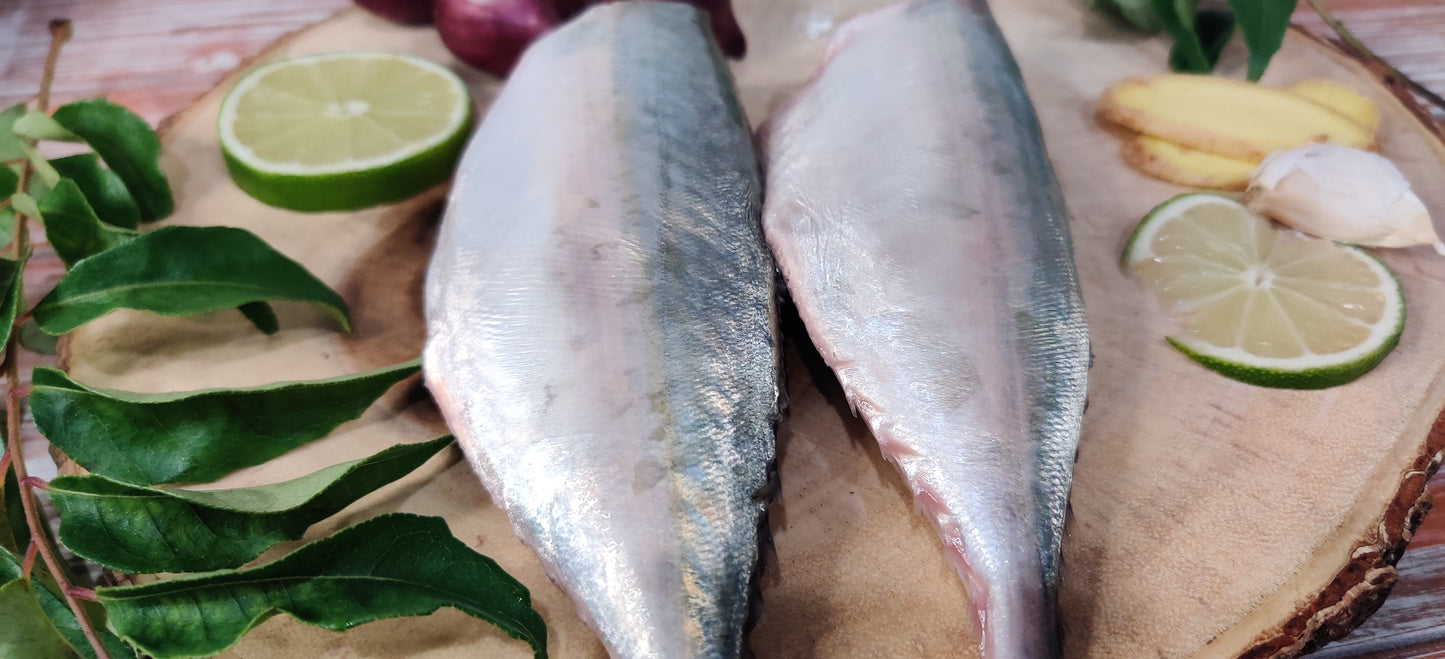Indian Mackerel / Ayala
Indian Mackerel / Ayala
Couldn't load pickup availability
Indian mackerel, also known as "Bangda" in India, is a type of mackerel fish commonly found in the Indian and Pacific Oceans. This fish is popular in various Indian and South Indian cuisines and offers several health benefits when included in your diet:
Low in Mercury: Indian mackerel, like many smaller fish, tends to have lower levels of mercury compared to larger, longer-lived fish. This makes it a safer choice for those concerned about mercury intake, including pregnant women and young children.
Rich in Omega-3 Fatty Acids: Indian mackerel is an excellent source of omega-3 fatty acids, particularly Omega-3 fatty acids are well-known for their positive impact on heart health, brain function, and reducing inflammation.
Heart Health: Regular consumption of Indian mackerel can help reduce the risk of cardiovascular diseases, omega-3 fatty acids lower levels of triglycerides, reduced blood pressure, and improved cholesterol profiles, all of which contribute to better heart health.
Protein: Indian mackerel is a good source of high-quality protein. Protein is essential for muscle maintenance, tissue repair, and overall body function.
Vitamins and Minerals: Indian mackerel contains various vitamins and minerals, including vitamin D, vitamin B12, selenium, and iodine. These nutrients play important roles in immune function, bone health, and overall well-being.
Bone Health: Vitamin D, which is present in Indian mackerel, is essential for calcium absorption and bone health. A diet that includes adequate vitamin D and calcium can help maintain strong bones.
Immune System Support: The vitamins and minerals in Indian mackerel, including vitamin D, selenium, and iodine, support immune function and help the body resist infections.
Versatile in Cooking: Indian mackerel can be grilled, fried, baked, steamed, or used in curries and soups, making it a popular ingredient in many Indian traditional dishes.
Share


